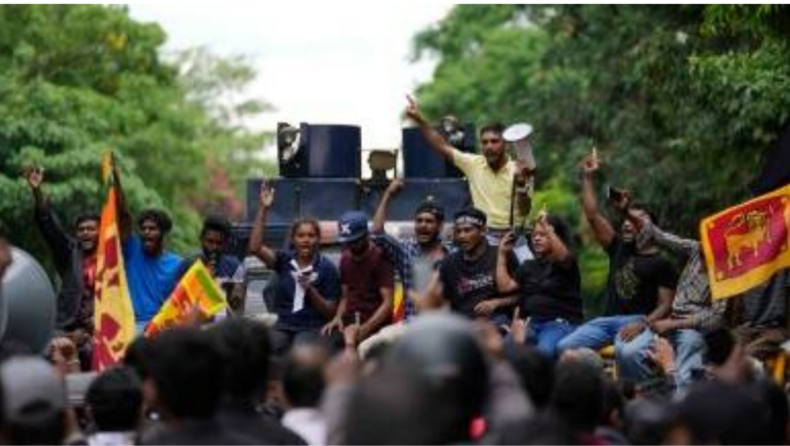All three nations – Nepal, Pakistan, Sri Lanka experiencing significant economic duress are participants in the Belt Road Initiative and are deeply indebted to Beijing due to EXIM bank loans.
Sri Lankan President Gotabaya Rajapaksa proclaimed a state of emergency on the island nation on Friday evening as popular fury towards the Rajapaksa’s for the country’s severe economic problems grew by the day.
Even though the Sri Lankan public blames Rajapaksa’s Inc. for the sinking foreign exchange deficit, massive external debt of over USDF 50 billion, and escalating inflation and prices, a statement from Prime Minister Mahinda Rajapaksa’s office denied that President Gotabaya had requested him to resign.
The island country of 22 million people is presently experiencing a severe economic crisis, with the Rajapaksa administration failing to find a solution because the demonstrations are not subsiding and it is apparent that only a change of prime minister or cabinet will appease the population.
While India has provided USD 2.5 billion in assistance, Colombo has returned to its primary sponsor, China, to request a debt rollover similar to Pakistan’s. Sri Lanka is negotiating with the IMF for financial assistance to combat the current crisis.
China has 10% of Sri Lanka’s total debt, with Japan, the World Bank, and the Asian Development Bank holding more. Nearly three per cent of Sri Lanka’s debt is held by India.
Nepal and Pakistan, India’s other two neighbours and China allies, are likewise in serious economic problems as a result of bad governance, mounting foreign debt, and food-fuel inflation.
All three nations experiencing significant economic duress are participants in the Belt Road Initiative and are deeply indebted to Beijing due to EXIM bank loans.
The current economic crisis in India’s immediate vicinity presents a dilemma for the Modi administration since popular fury in these nations might escalate to a humanitarian disaster, with migrants flowing from north Sri Lanka into Tamil Nadu and from Nepal over the state’s porous borders.
Pakistan has already gotten loan commitments from Saudi Arabia and the United Arab Emirates after the current leadership attempted to restore ties with the two kingdoms following Imran Khan’s departure, but the situation in the Islamic Republic is terrible.
While many armchair strategists believe that the current economic crisis gives a chance to the Modi administration, the reality is that the current economic catastrophe in Sri Lanka, Nepal, and Pakistan is the result of decades of fiscal irresponsibility and poor governance.
The only thing the Modi administration can do to prevent the spreading of Islamic radicalism in these nations from jeopardizing India’s national security is to deliver a cash package to quell the popular outrage in these countries.
While Nepal has restricted imports of luxury goods and Pakistan has reduced fuel and electricity subsidies, Sri Lanka appears to be heading in the wrong direction, with the public firmly opposed to the Rajapaksa administration and the opposition lacking the strength to provide a political alternative.
China’s long-term economic stagnation as a result of stringent anti-Covid policies in almost half of Beijing and all of Shanghai would discourage the Middle Kingdom from giving economic aid to these subordinate governments without collateral.
It is time for these nations to learn that massive infrastructure projects financed by external debt without adequate foreign exchange reserves invariably end in tragedy.
Published By : Chittajallu H S Kumar
Edited By : Kiran Maharana












